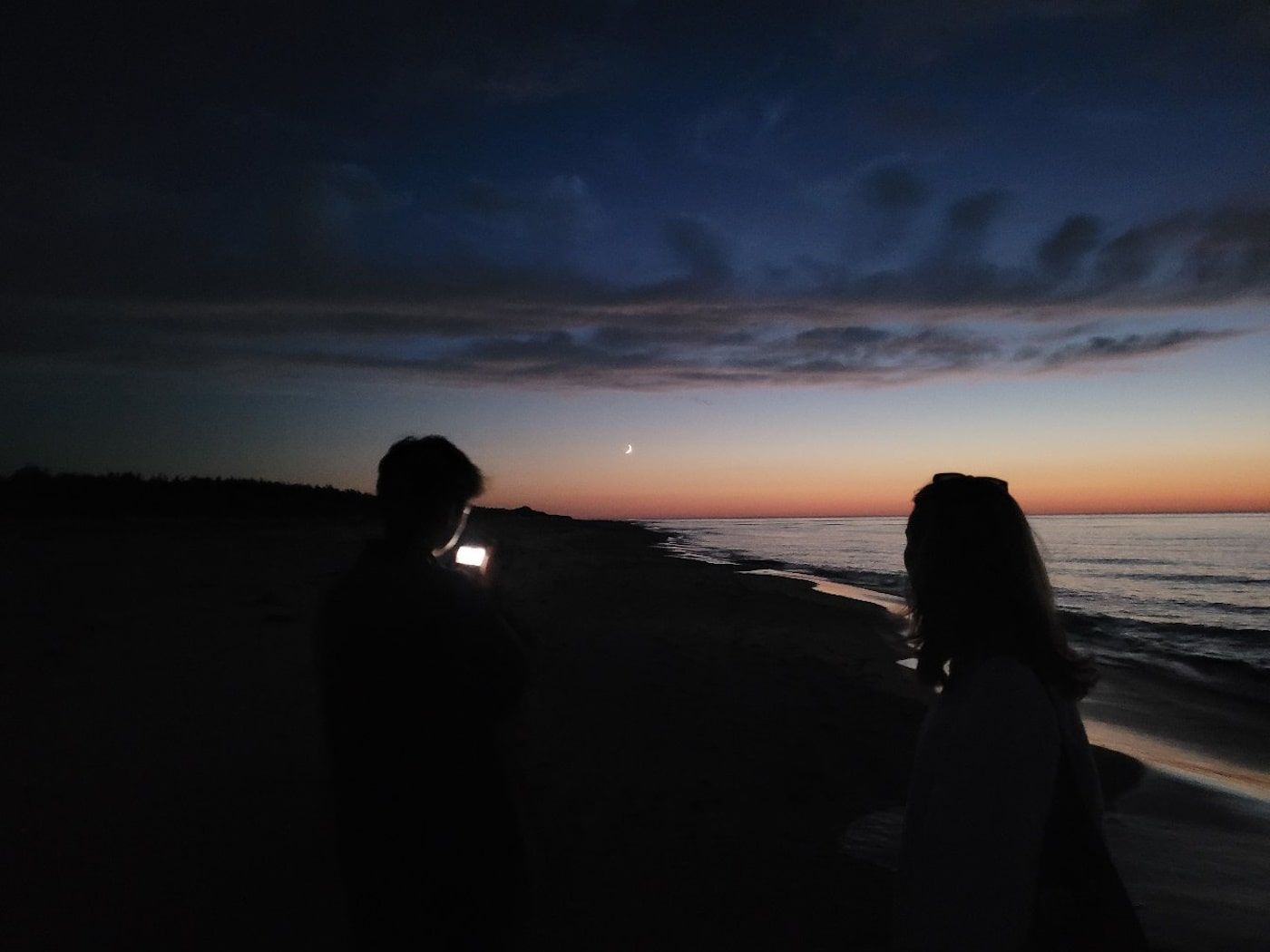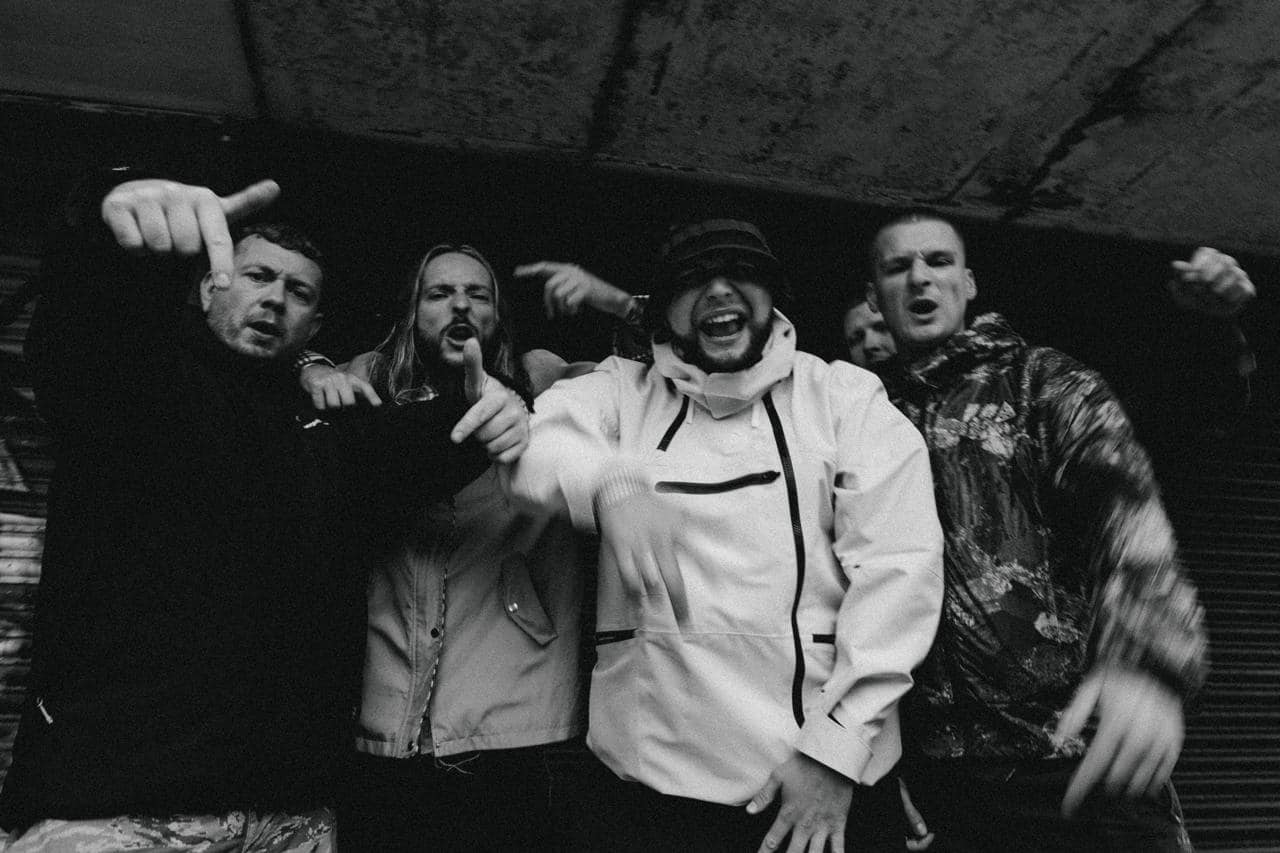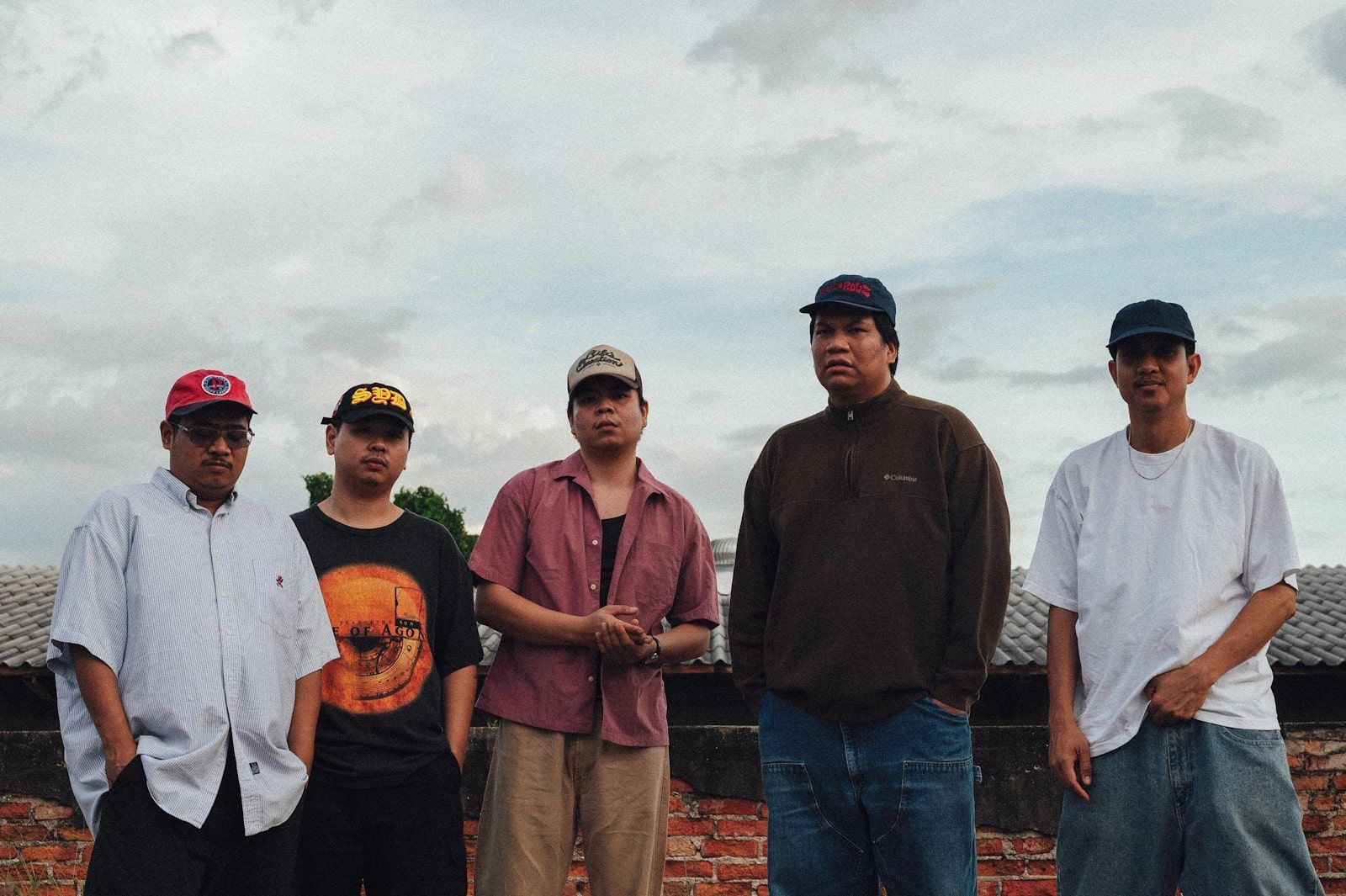At once unnerving and calming, the experimental sounds of behemoth the cat invite listeners to meditate or lose themselves entirely. The ambient free-folk project, consisting of Nick Hildenbrand and William John, released their self-titled debut album on October 15, offering a sonic journey that blurs the lines between serenity and chaos.
Nick Hildenbrand, also a member of Burial Etiquette—a band we reviewed earlier this year—collaborates with his close friend Will to bring this project to life. The duo’s partnership began in late 2018 when they connected through a Midwest emo Facebook group. Bonding over a shared love for artists like Cap’n Jazz, iwrotehaikusaboutcannibalisminyouryearbook, and Bob Dylan, they quickly became best friends. Initially crafting twinkly emo tunes inspired by American Football, their evolving musical tastes led them toward the experimental realms that define behemoth the cat.
Their debut album is a tapestry of personal experiences, poetic introspection, and ambient soundscapes. The opening track, “rouleau blues,” serves as a testament to their transformative journey. Will penned the song after a life-changing motorcycle trip across Canada in the summer of 2021. Riding through the vast prairie fields of Saskatchewan, he was inspired by the rhythmic clatter of a 4-kilometer-long freight train and the sight of a little blue heron mirroring his own posture against the relentless prairie wind. The track incorporates samples of the train’s clicks and clacks, the wind, and humming diesel engines, layered with slide guitar that echoes the steel rails’ whine.
Nick recalls receiving the initial iteration of “rouleau blues” as a premonition—a hopeful sign of imminent artistic actualization. At the time, he was searching for a new musical outlet, having only his poetry and drumming skills. The track signified a shift toward the ambient and free-folk influences that would become essential to their sound, drawing inspiration from artists like Grouper and TwinSisterMoon.
The album continues with “how was south america?”, a track born from moments of profound clarity and spiritual awakening. Will describes a pivotal experience when a barn swallow flew into his family’s barn attic, awakening him with its close, swift movements. This encounter solidified his decision to pursue a life on the road as a long-haul trucker, filling him with a sense of purpose and divine affirmation.
Struggling with uncertainty after grad school and grappling with intense, unrequited love, Nick found the song imbued him with a clarifying sensation. It inspired him to embrace experience and seek universal candor in his pursuits. During his time in Prince Edward Island, he contributed to the track by recording improvised percussion, aiming to match the integrity and spontaneity of Will’s guitar work.
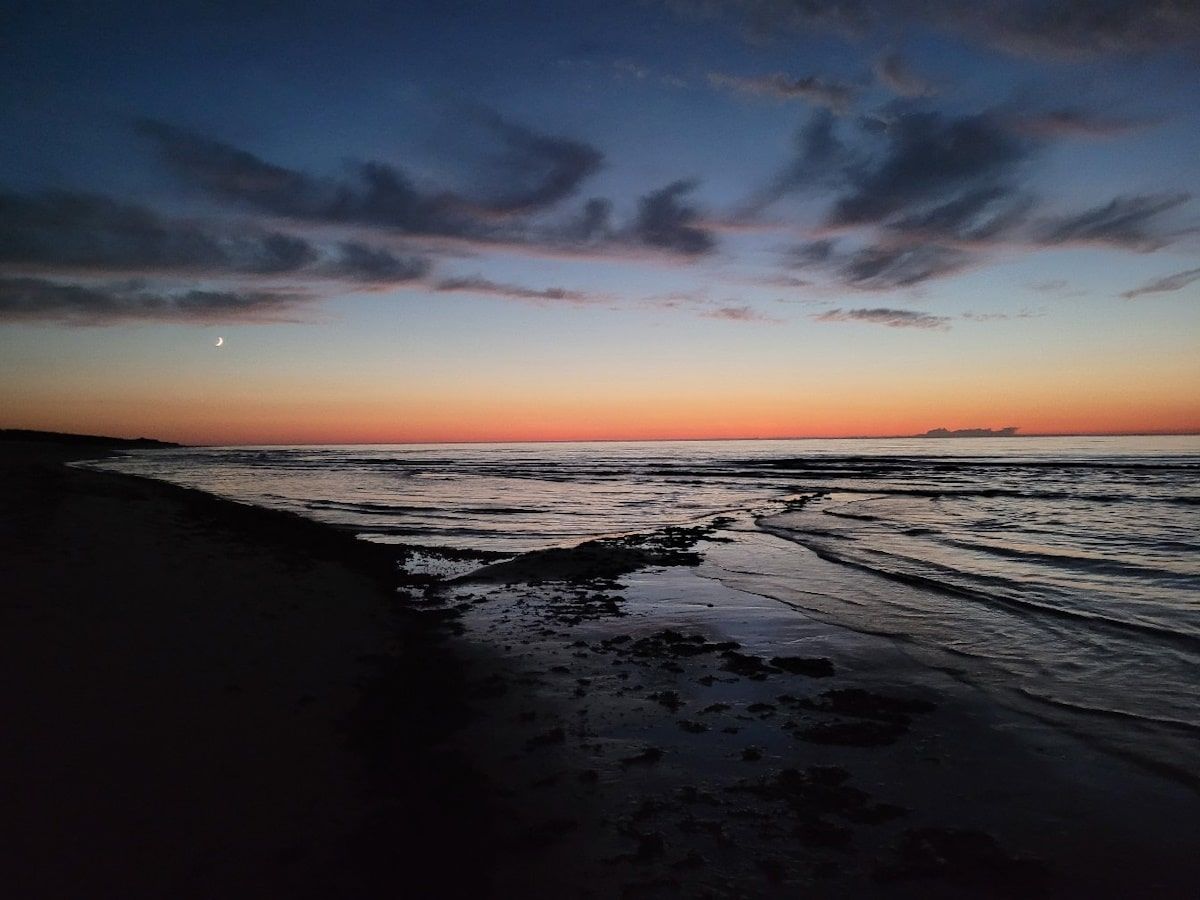
The final track, “greenwich beach dyad ii,” encapsulates a sacred moment of camaraderie and yearning. Will visited Nick in Prince Edward Island, bringing a sense of brotherhood and earnest artistry that grounded Nick during a period of isolation and introspection. Along with their friend Julia, they spent a day at Greenwich Beach, immersed in what felt like an ineffable, holy experience. The trio shared poetry, music, and deep conversations under the vast expanse of the Milky Way, with the wind playing through Will’s twelve-string guitar like a harp.
Nick describes the melody of “greenwich beach dyad ii” as an interstice that captures the culmination of their camaraderie, yearning, and the symbolic sway of the sea.
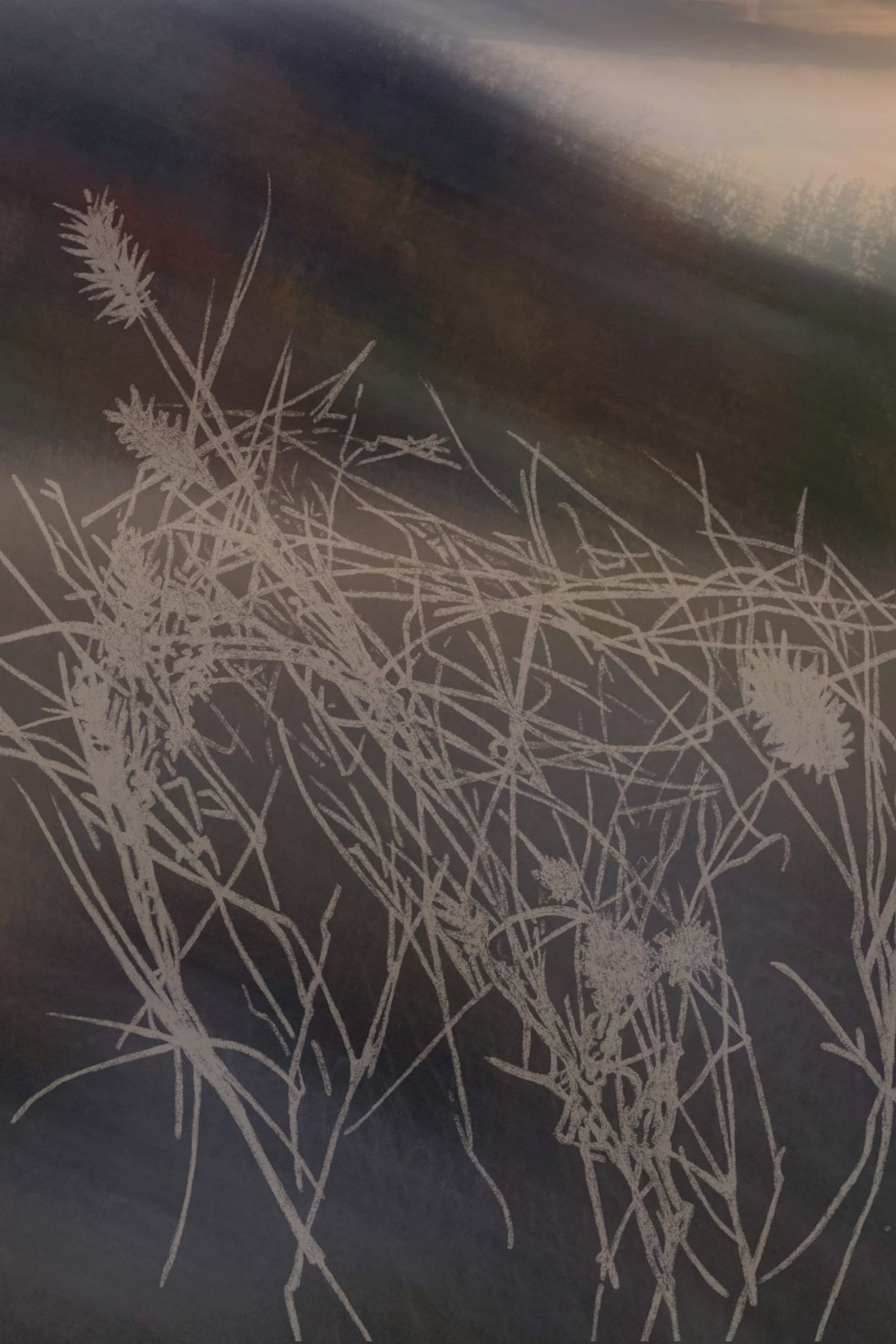
The band recently release their album on cassette tape through self versed records.
Accompanying the tape are a series of photographs that blend scenes from Prince Edward Island with poems written by the band.
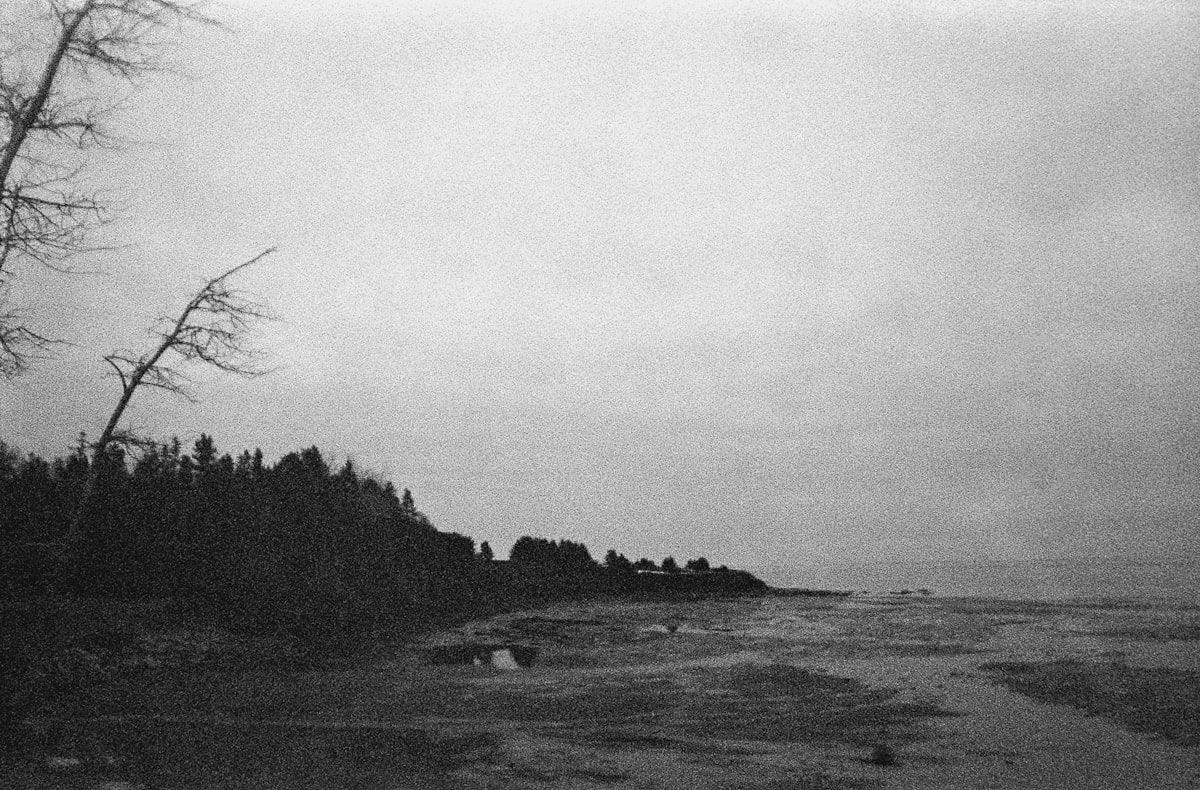
Behemoth the cat’s debut is an exploration that challenges and soothes, rooted in personal narratives and poetic expression. To immerse yourself even more, we invite you to delve deeper into the minds behind the music.
A full track-by-track commentary, featuring the complete poems and detailed insights from Nick and Will, is available in its entirety below.
ROULEAU BLUES
long plains breath
shapes me like
the little blue heron
perched in the passing
stipa estuary—
I move to your voice and sit
sail legged,
accepting that
I am sewn through your comata,
and strung by the Northern
blazingstar koto.
Will: In the summer of 2021, my partner Carmen and I set out for a cross Canada road trip with the goal of making it 10 000 kilometres to the Pacific ocean and back to Niagara Falls. I had a cheap Suzuki motorbike that burned oil and a 2005 Ford Escape SUV that leaked oil. With the back seats ripped out and some makeshift curtains we had a camper. I rode all day everyday, all across the provinces, up and down and slowly west.
I encountered Canada—all sorts of people and all sorts of places. I brought a guitar as I was certain that I would play and write everyday about our experiences, and although I had one with me, I didn’t touch it the whole time, it was all too momentous and beautiful. Only when I returned back to Niagara Falls over a month later was I able to begin to process and express what had occurred in the form of music.
One night, next to my bike in the shop, I recalled Saskatchewan and wrote and recorded “rouleau blues.” Watching a video I had taken of a 4-kilometre long Canadian Pacific freight train crossing the vast prairie fields, I set about sampling the clicks and clacks, the wind, the diesel humming. It was clear I had to play the slide as a chorus to the steel-whining rails. I heard in that train a Canadian blues, immense, alone in the midwest plains of rugged Sask, but unified by that coast to coast rail with all Canada’s different landscapes.
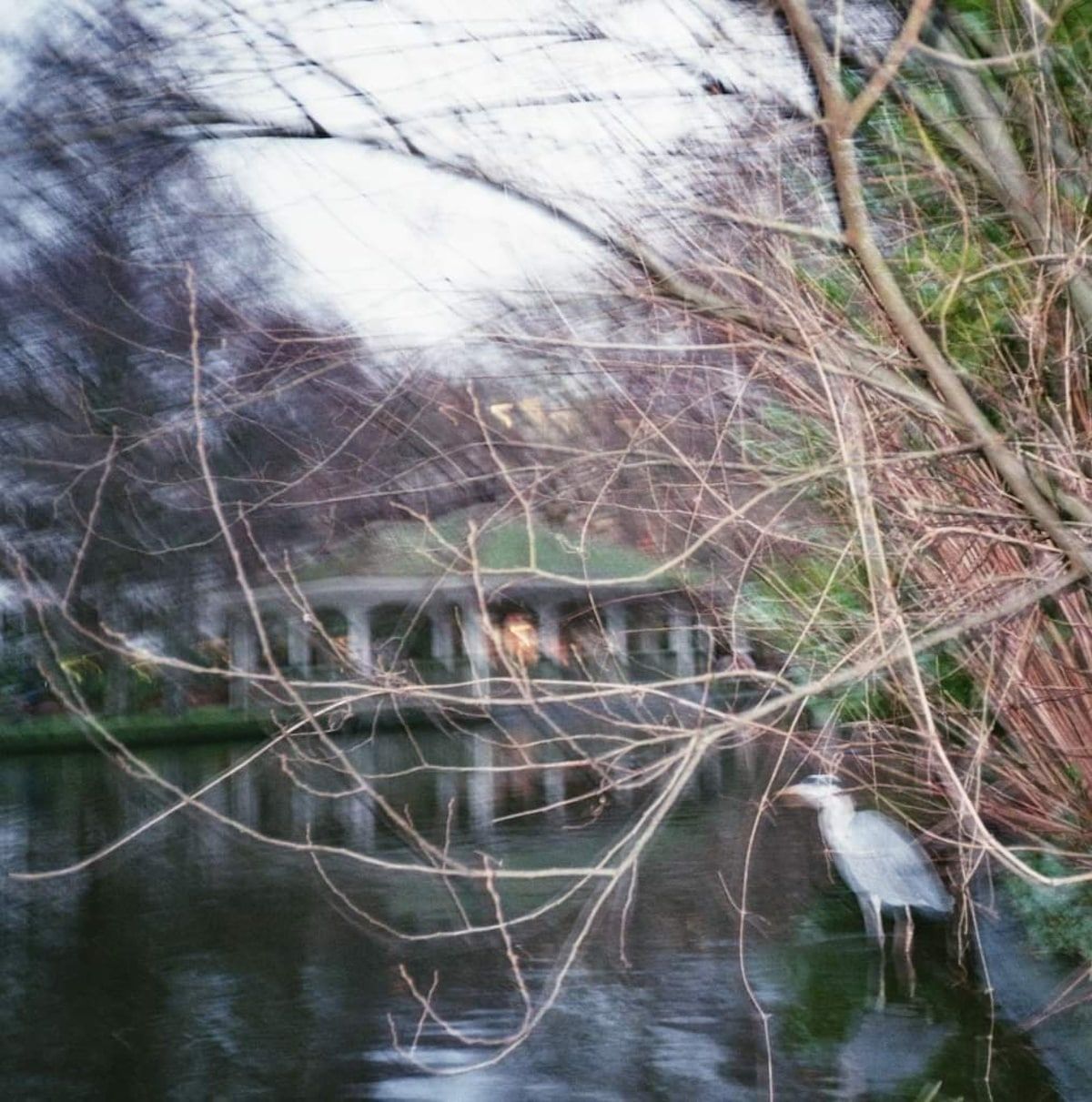
Nick: At the end of 2018, I met Will on a midwest emo facebook group. At the time, I could only write poems and play the drums, and had been without a musical outlet for the past two years. I put out a call for fellow musicians in Ontario, and I’m pretty sure Will was the only one to respond. We became best friends pretty much immediately, bonding over a shared love of Cap’n Jazz, iwrotehaikusaboutcannibalisminyouryearbook, and Bob Dylan.
We started off by making twinkly emo in the vein of American Football [Steve Lamos was a primary creative inspiration for me as a drummer]. However, the music we were listening to was very different. Will had been introducing me to a lot of blues, folk and ambient music.
Over time, he put me on to the artists that would come to be the essential influences for behemoth the cat—namely, Grouper and TwinSisterMoon. I think as our tastes in art were changing, the type of music we were making felt pigeonholed. So when Will sent me the first iteration of “rouleau blues” in 2021, it was a premonition. It was a hopeful sign of imminent actualization for ourselves as artists.
Will: The accompanying poem for “rouleau blues” came out of a distinct moment of poetic cohesion whilst riding across the parkland of North Central Sask. The famous prairie wind was blowing from the north, trying to push me slowly into the opposite lane of the highway, and I learned that if I hunched down, sticking my right knee out at a funny angle, my body would act as a sail, correcting my trajectory.
Riding for hours in this position was exhausting—yet I felt, more than ever, that I was one with my machine and that rustic wild landscape. I flew for hours through tall blowing grass and marsh ponds; I saw moose, deer and waterfowl—but what struck me most was the little blue heron who sat in the water with his leg outstretched just like me.
HOW WAS SOUTH AMERICA?
I.
Woken at dawn in my timber framed truss
by a red faced fellow traveller,
blessing and diving,
a holy swallow calling for my own million miles,
my own over passing
sailing Kerouac proclamation:
II.
Imbued with sacred breath—
your efflorescing peak unfurling starry brow,
knotting my voice
with the impenitent draw of your billow
bound by islets, memory, eminence,
ascending like the passerine,
the hallowed mouth of blooming sun,
exhaled seep of interstice, the languid pulse of moulting halo,
baptismal press of odour,
lapping the swell,
taped with nectarous melt,
spilling your grip with petaline crest of dew-embedded love.
Will: In the year after the road trip, I found myself in a state of despair and stagnation—I had gone from a massive ecstatic high back to mundane normality. I found no interest in anything except the road. I was at a grey, indiscernible point in my life where I had no post-school career prospects; I had abandoned any plans I had made concerning my future before the trip. I was determined to find something that struck me, something that gave me what I had attained during my journey. I set my sights on long haul trucking—though I was unsure and had my doubts that I could do something like that.
However one very early morning whilst asleep in the attic of my family’s barn, I was woken (just as the poem goes) by a barn swallow that had flown through an open window. It flew back and forth the length of the room 2 feet from my face; I felt the wind of its passing touch my face and heard it singing. I watched it fly back and forth, half asleep, still partially dreaming. This swallow had flown from South America all the way to me.
I felt it was an ancient symbol of travel, igniting in me more than ever a fever, and I firmly knew then that it was right for me to take to the road again, to pursue trucking. This was unquestionably one of the most sacred occurrences of my life wherein I knew with absolute certainty that I was pursuing something right and true and that my yearning was vindicated by God.
I aimed to reflect in “how was south america?”, as much as possible, nothing except this moment of elucidation. I began the song with dormant anticipation, restless yet stagnant expectancy, my strings searching back and forth, looking for the answer. The swallow arrives and brings with it everything, ecstatic transcendent clarity, I am shaken and awoken, the path is clear and my guitar resounds this clarity—I do nothing except champion and signal the arrival of this Spirit.
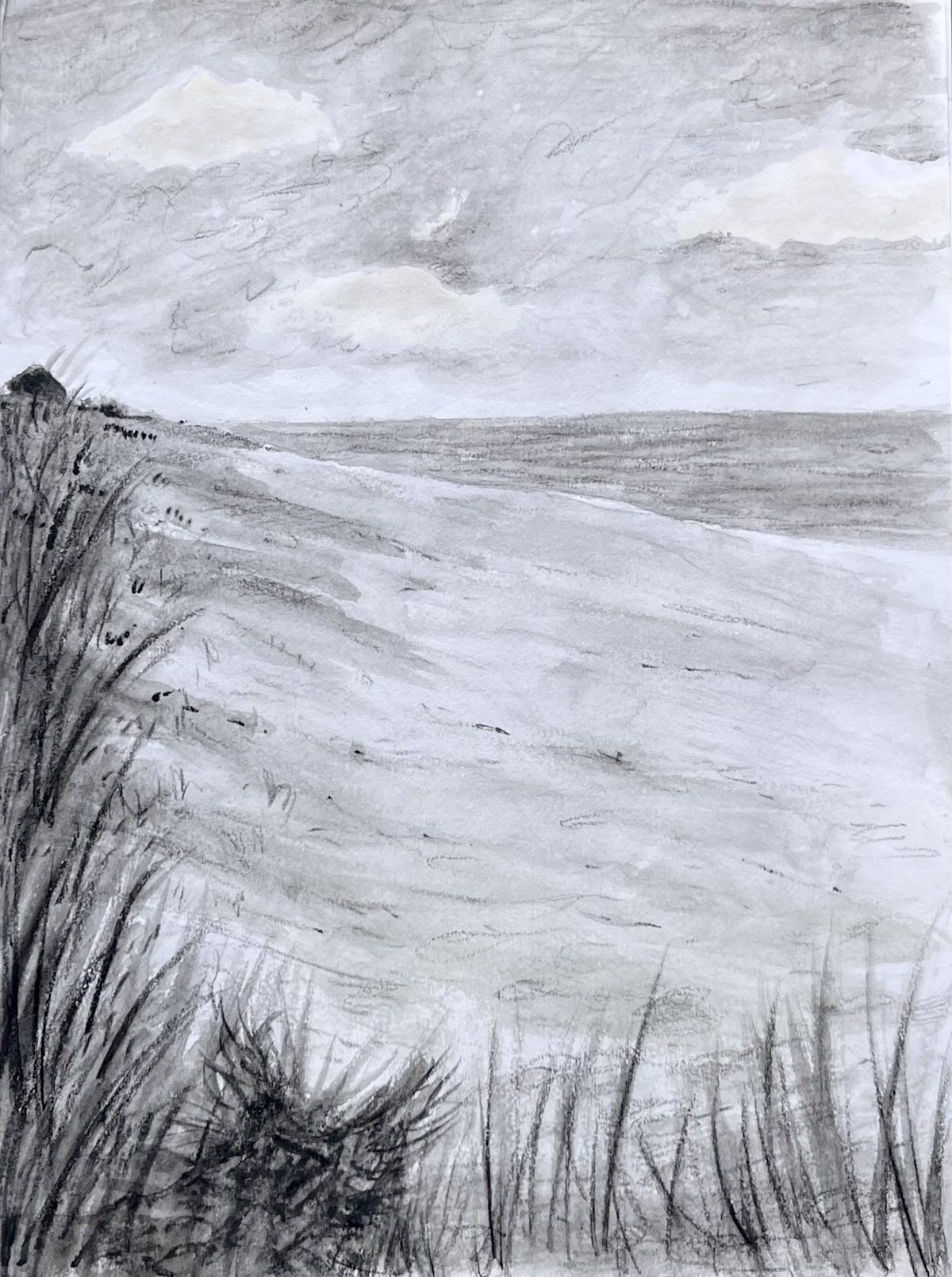
Nick: Will sent me the first iteration of this track just before the precipice of my own journey, where, as with Will, I was struggling with the uncertainty of my own future. I needed to find a way to make money. I was just out of grad school, had just published a book of poetry, The Marshwood Songs, and was contending with a love that was intense, unremitting, and secret: although our feelings were reciprocal, she was engaged.
At the time, I had just been accepted into teacher’s college in Prince Edward Island, but I felt conflicted about moving there, being away from the friends, family, artists, and girl that I cared so much for, for a program that I wasn’t very keen on. Hearing the first recording of “how was south america?” imbued in me a clarifying sensation very much akin to Will’s meeting with the swallow. I was lifted; I felt my own Whitmanic call for experience, for betterment, a compulsion to go and see, and bring to my seeing a universal candour.
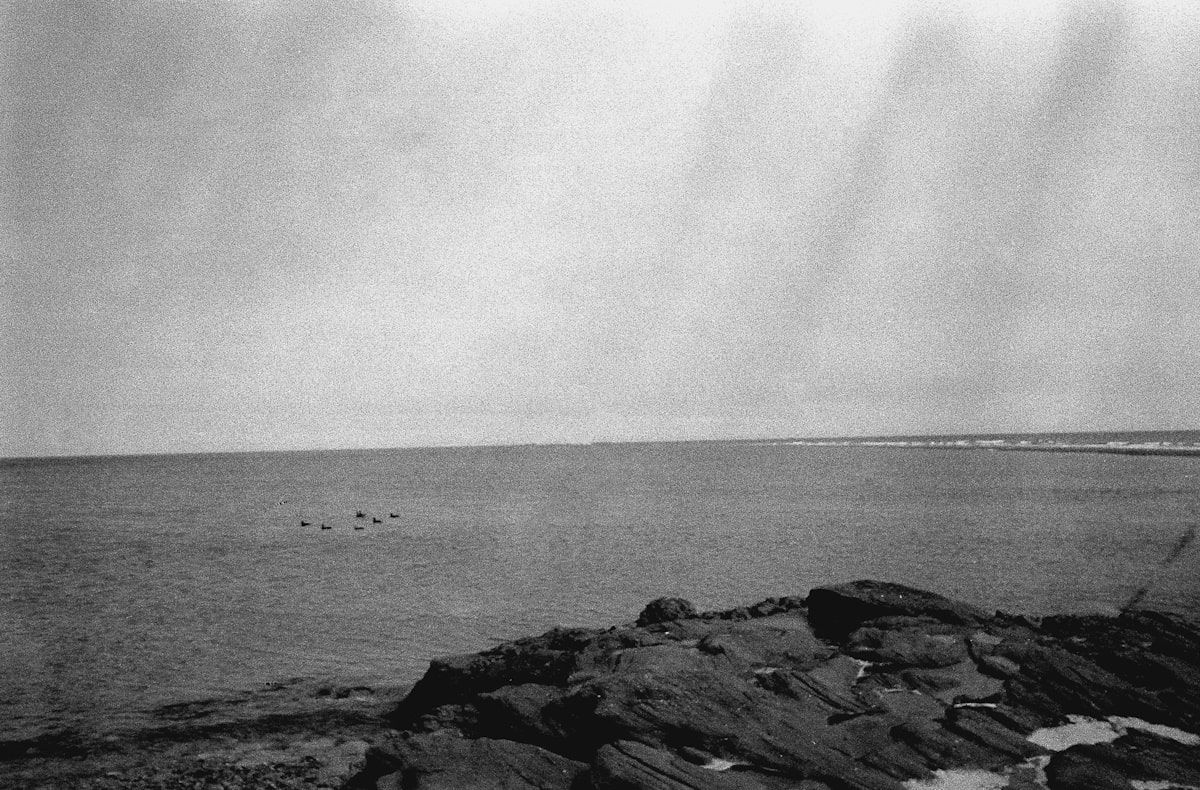
When I was laying on a beach in PEI, my love sent me a video she took of herself singing an interpolation of the Ginsberg poem called “Song.” She had written it for me. There was the fresh, plasticked sheen of a tattooed swallow ascending the scope of her shoulder. “The weight of the world is love.”
It was arresting, holy, an utterly beautiful and synchronous thing. In response, on the anniversary of our meeting, I wrote part II of “how was south america?” as an encompassing thank you—I wanted to honour the temporal beauty of experience as it subsists in transience. Afterward, in a little town called Montague where I was working as a pre-service teacher, I spent the day in a high-school music room, recording improvisations of various percussion instruments, trying to conduit integrity & spontaneity as an accompaniment to the same integrity I heard suffusing Will’s guitar.
GREENWICH BEACH DYAD II
and when we walked down sere path of grasses
that tipped their heads through the pinkish sweep of arrowed sky—
the curl of froth perfumed our shins.
I made for its rhythm
with indentations of mosquitos
that bobbed to my cheeks
like infinitesimal dancers,
like the crowning float of dust that tethered
canescent tears and rivered its glimpse
with arcs of rosewood,
sunhat bow with bars of cloven voice,
emergent hush that peered from travelled string,
that sought to guess at marks that burned the steer of redolence—
the blemish of its seeping track—
immensity.
Nick: In late August of 2023, Will brought two of his guitars to Prince Edward Island. I had been in the province for four months at this point, and my feelings were in a state of precariousness. Although I had made a plethora of dear friends, I was isolated, distanced from what I perceived as purpose—no matter where I was, what I was doing, my mind and spirit were always adrift, seeking the fringes of my province, which, as dumb as it sounds, became almost as a kind of Eden to me. I was embroiled in sheer melancholic desire, distressed by the confines of secrecy and circumstance, passivity, slow festering guilt, self-sickness.
I existed only in accordance with my hope, only for my dreams of a vague future in which I was with my love, creating music for my love. I lived for some indiscernible day in which, I believed, everything would come to light.
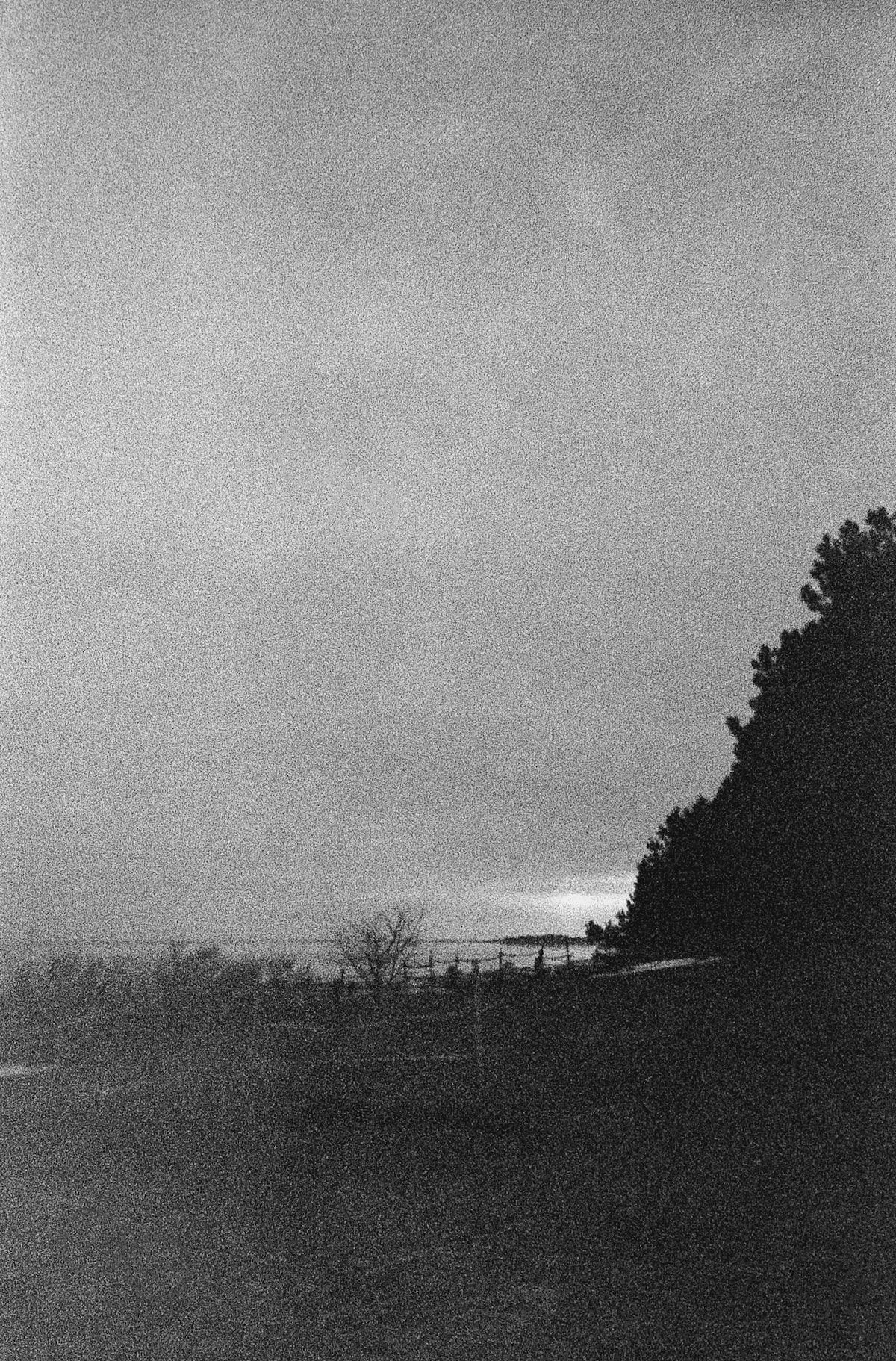
From the moment Will arrived in PEI, he maintained this somewhat goofy, somewhat serious simple fixation on playing music with me. He brought me kindredness—a reconfiguration of brotherhood through earnest artistry. For the next few days, we got up to various shenanigans on the island, going to local punk shows, hanging with my pals at pop-ups, playing guitar and reciting poems at each other on beaches, etc.
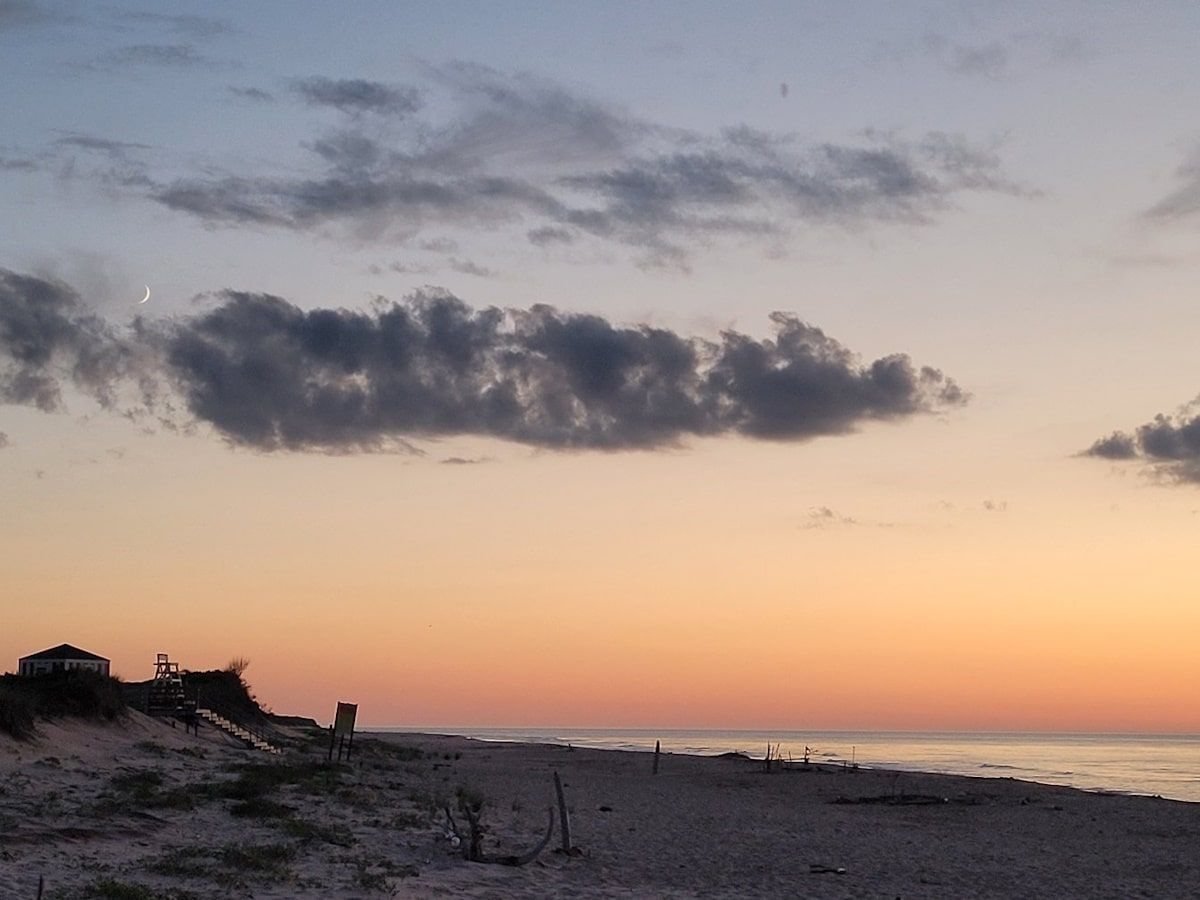
It was all very refreshing in a way that I did not anticipate. Will showing up rooted me in presence, transforming the tunnel-vision of my hope into something less crumbling.
The day before he left, we decided to hit up one more beach. We brought guitars and my friend Julia, who was then in the middle of navigating an entanglement that was cosmically similar to mine, both in terms of context and intensity. It’s hard to adequately describe the tangible sanctity of our time spent at Greenwich Beach. We were just hanging out, but the day and night felt ineffable, holy. I think we all intuited that we existed, in that moment, in a state of sacred resonance—at what seemed like the edge of the world.
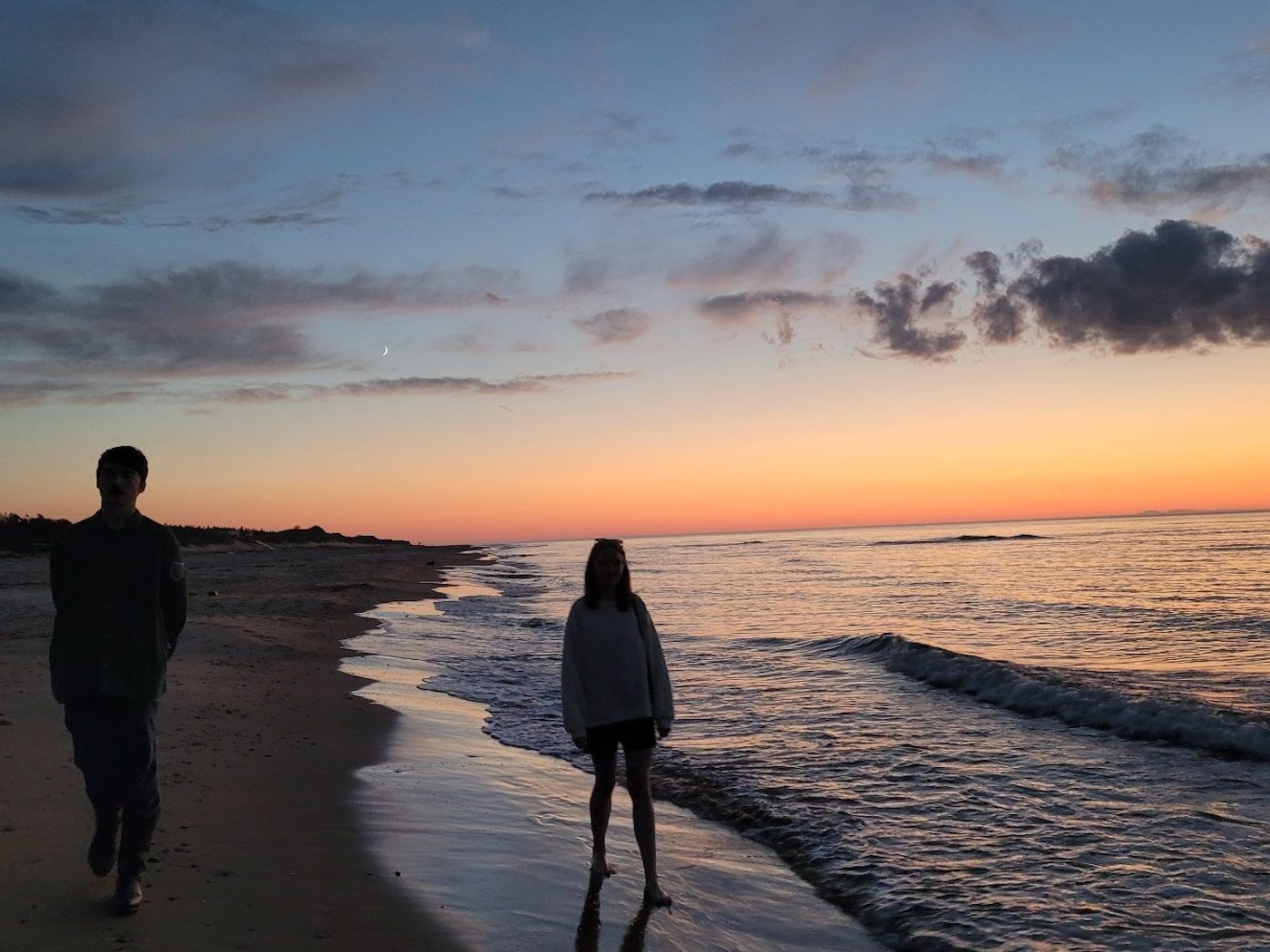
I remember Will said, “I think my guitar might sing,” and held up his twelve-string to the wind that came off the Atlantic swells, which sighed through his hands like a harp. Julia and I spoke about our kindred hopes and loves at what appeared to be the centrifuge of the Milky Way; she said to me, “I think you’ll be alright.” We read to each other “Song of the Open Road” and poems from the Book of Exeter, strutting through the sand up and down the coast while the sun set.
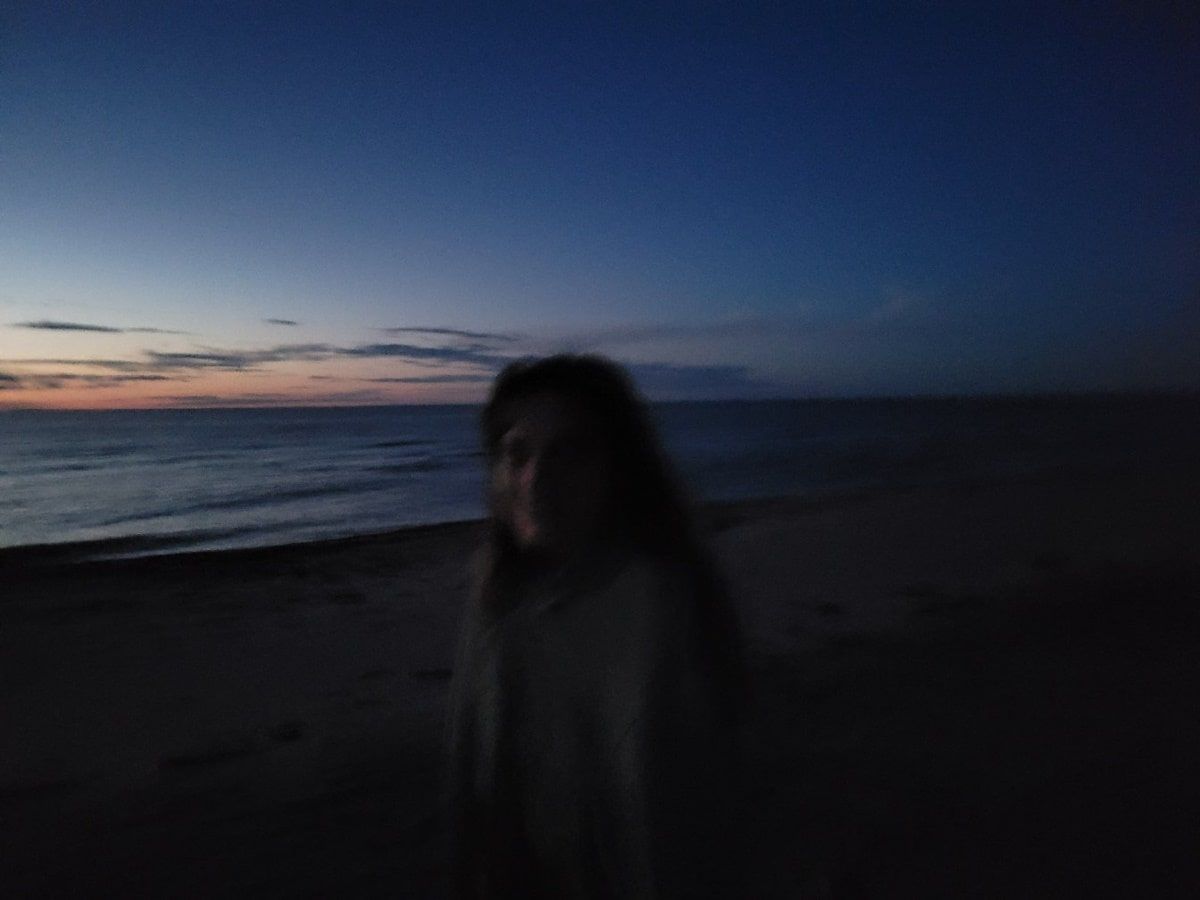
At some point, spurred by the tidal lull which swept through us, I played the riff that would become the core of greenwich beach dyad ii—my guitar missing a string, mosquitos haloing me, Julia dousing me with a can of bug-spray, Will recording everything on his phone, swatting them off of my shoulder. At least for me, that melody is an interstice that encapsulates the culmination of all our comradery, and all our yearning, and all that the sway of the sea represented for us.



